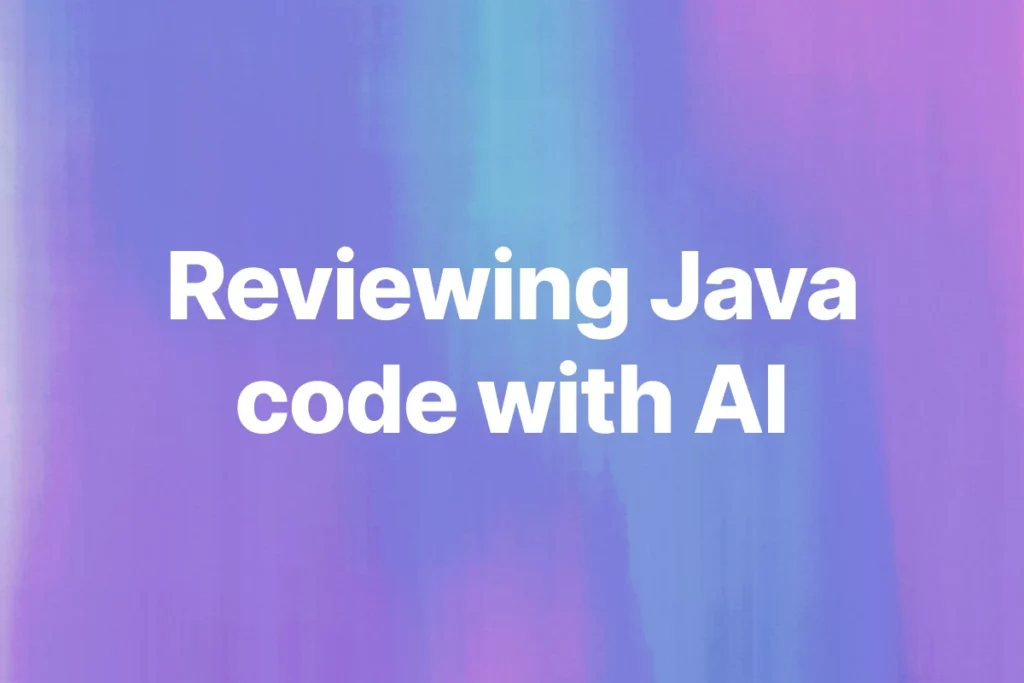When you push new commits to a pull request, most tools re-review every file. Even if you only changed two lines, they scan the entire repo again. It wastes compute and clutters the review with repeated comments.
Bito’s incremental code review works differently. It reviews only the new or modified lines in the latest commit. Everything else is skipped. The agent stores context from previous runs, so it already knows what was reviewed before.
This is especially useful in large codebases or monorepos where hundreds of modules exist. Instead of re-analyzing stable files, Bito checks only the diffs that matter. The result is faster feedback and lower review cost without losing accuracy.
What is incremental code review
Incremental code review means analyzing only what changed in your latest commit instead of re-checking everything in the pull request.
When you push a new commit, Bito compares it with the previous reviewed state. It identifies the added, removed, or modified lines and limits the review to those chunks.
In large projects or monorepo setups, one pull request can touch code across several modules. Without incremental review, every push triggers a full re-scan, which can take several minutes and generate redundant comments.
By reviewing only the new changes, Bito keeps feedback short and relevant. It also reduces compute usage since unchanged files do not get parsed or analyzed again.
The result is a faster review cycle that still maintains the same AI code quality coverage. You see comments only for what you actually changed, not for what was already fixed in the last run.
Running incremental code reviews in Bito
So I am working on a small Brick Breaker game in Java inside VS Code. It uses Swing for rendering and a timer loop for animation. A basic setup, but good enough to test how Bito handles incremental reviews.
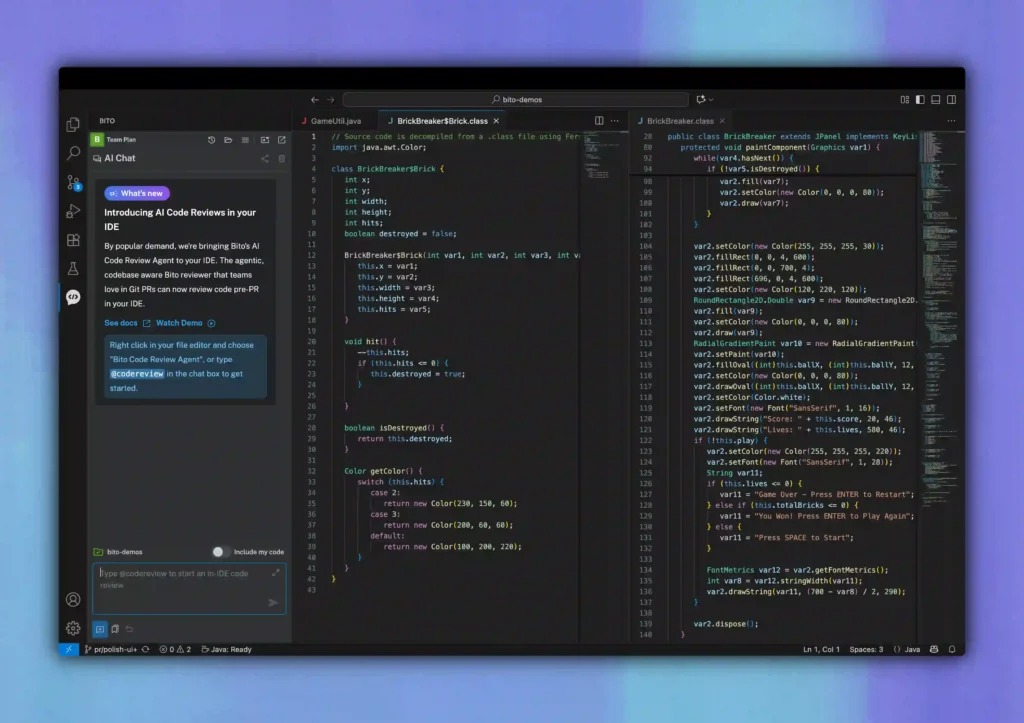
When I opened my first pull request, it added two files, BrickBreaker.java and GameUtil.java, with around 350 lines of code. This was the full feature drop, so I knew Bito would run a complete review the first time.
Here’s one part of my original code that handled paddle collisions.
if (ballRect.intersects(paddleRect)) {
ballVelY = -Math.abs(ballVelY);
double hitPos = (ballX + BALL_SIZE / 2.0) - (paddleX + PADDLE_WIDTH / 2.0);
ballVelX = hitPos / (PADDLE_WIDTH / 2.0) * 4.0; // more control
}
And this part handled lives and game over.
if (ballY > HEIGHT - BALL_SIZE) {
lives--;
if (lives <= 0) {
play = false;
}
}
When I ran the /review command, Bito started off with a summary, change list, and an interaction diagram.
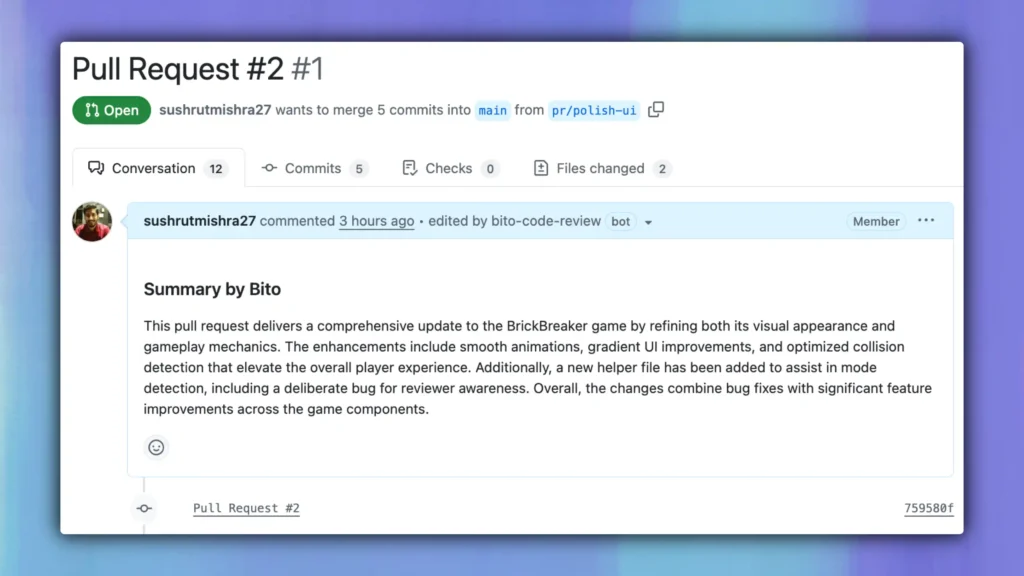
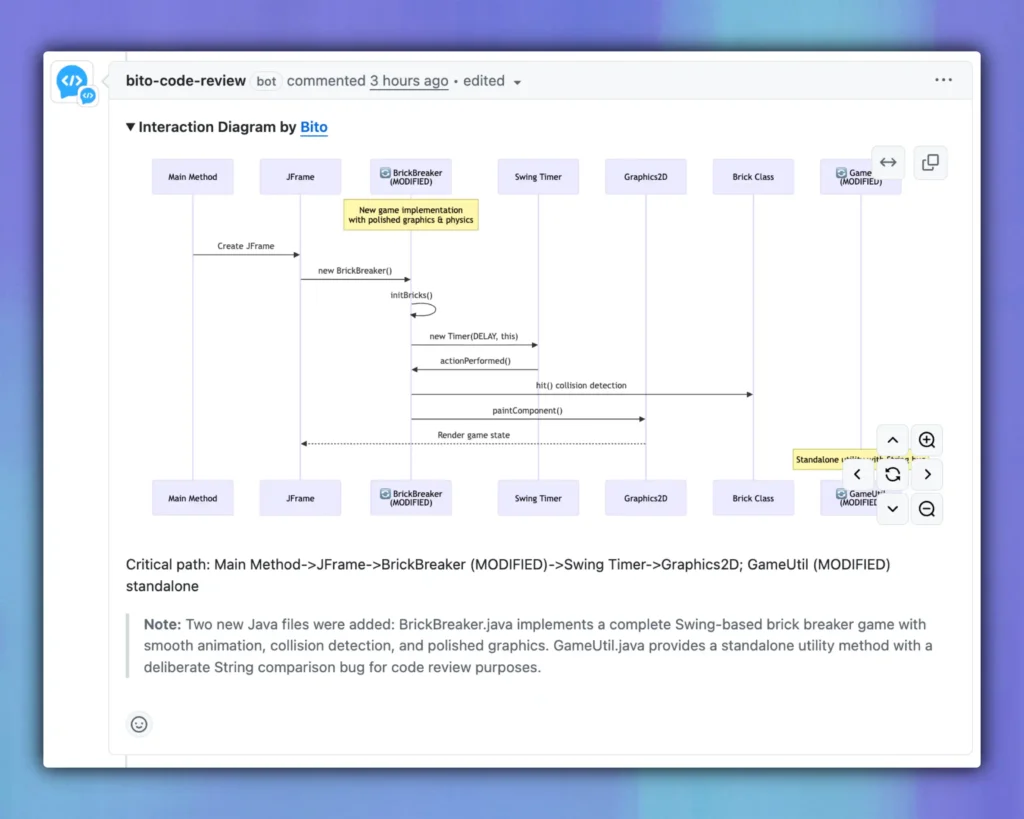
Bito then picked up the exact kind of bugs that usually slip through.
- The ball could get stuck in the paddle because I didn’t check if it was above it before reversing direction.
- The timer kept running even after the game ended, wasting CPU.
- The game never restarted the timer when pressing Enter to replay.
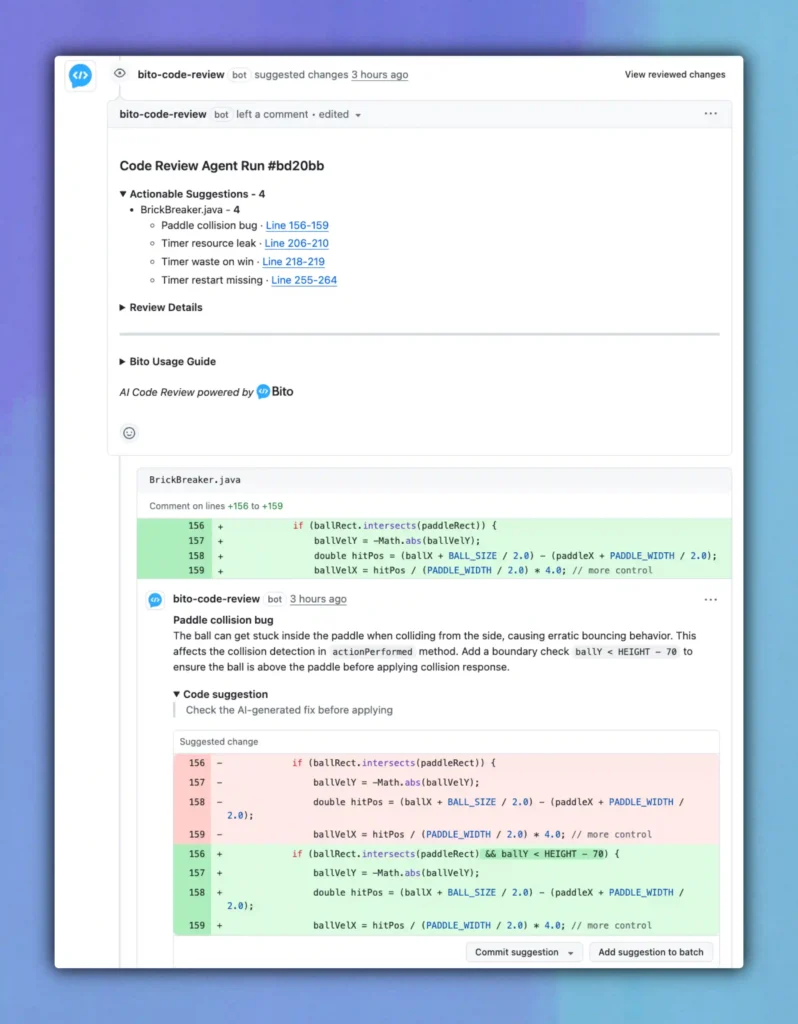
Bito’s suggestions were clear, line-specific, and easy to apply.
New commits, new issues, incremental review
To test it further, I pushed a few more commits.
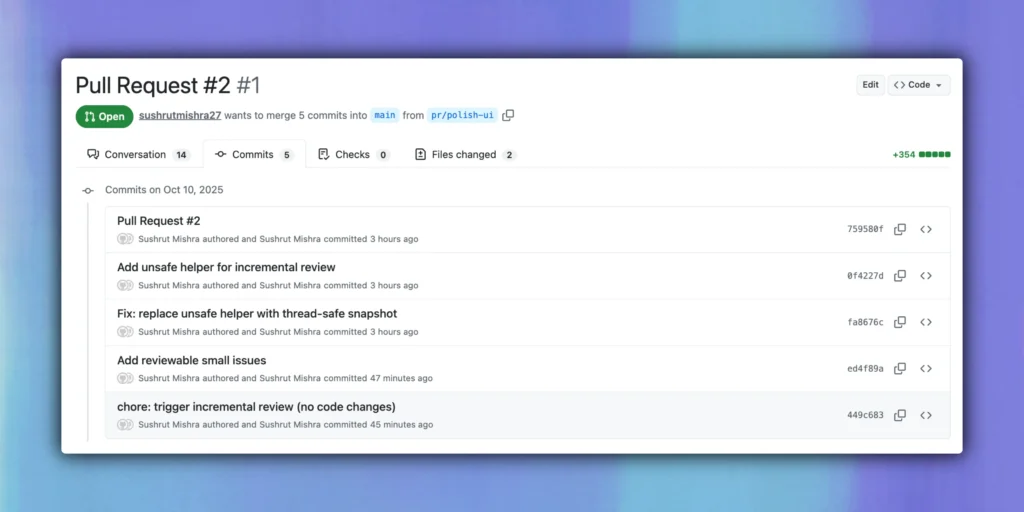
For the second Bito run, it didn’t catch any bugs. The AI code review run was perfect with no suggestions.
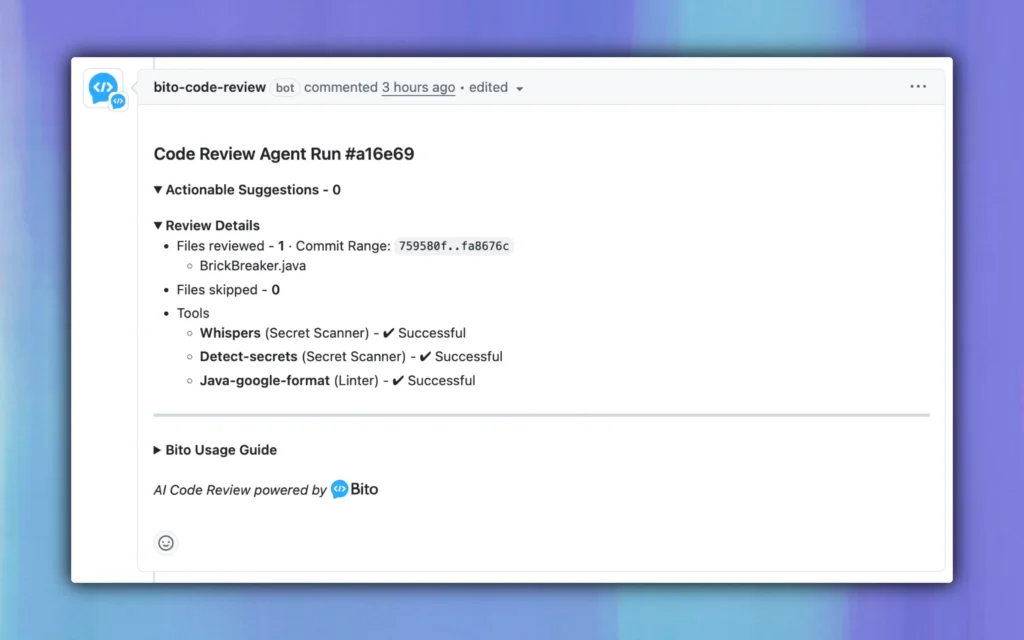
Then in the last commit, I introduced a small logical bug on purpose.
private int computeBonus(int destroyedCount) {
int bonus = 0;
for (int i = 0; i <= destroyedCount; i++) { // off-by-one error
bonus += 10;
}
return bonus;
}
And another one had a string comparison problem in my utility file.
public static boolean isSpecialMode(String mode) {
// intended: return "HARD".equals(mode);
if (mode == "HARD") { // wrong comparison
return true;
}
return false;
}
When I ran /review again, for the third time, Bito only looked at those two files. It skipped everything else and caught exactly what I added.
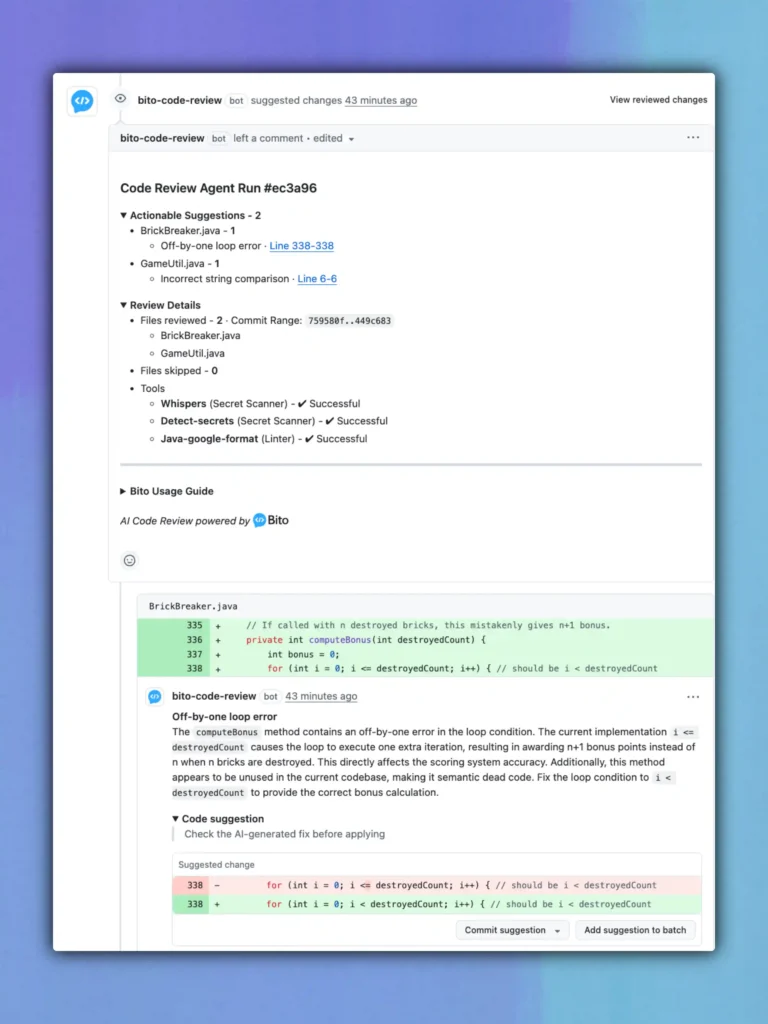
It flagged the off-by-one error in the loop and pointed out that I used == instead of .equals() for string comparison. Both were precise catches, and the feedback was short and clear.
Does incremental code review work in Bito?
Across five commits, Bito ran three times. The first review gave four suggestions. The second reviewed only the diffs and found nothing new. The third caught two new issues in the changed lines.
That is how incremental review feels in real work. Fast, focused, and aware of context instead of re-analyzing the whole project every time.
Conclusion
Incremental code reviews in Bito do exactly what they should. They review only the new lines you push, skip everything else, and keep context from past runs.
If you want to see what else Bito can do beyond incremental reviews, check out some of our short YouTube demos:
- Chat with Bito: ask questions about your code directly inside the review.
- Jira Integration and Functional Validation: link tasks, validate requirements, and close tickets automatically.
- Detailed Analytics Dashboard: track review trends, improvement areas, and code quality metrics over time.
These features together make Bito more than just a code reviewer. It becomes part of how you ship better software.



